Spring 2024

Welcome these first pages of the global compendium of Teachers who Coach. At the end of 2023, I invited teachers to send me their stories of how they became coaches, and why they chose to do so. I also asked them to share the benefits of the outcomes they have experienced. Finally, I asked them to reflect on the process of telling their stories. Who am I? I am Martin Richards, a retired teacher and coach. I am based in Scandinavia and have worked with teaching since the 1980s and with coaching since the early 2000s. My last employment, coaching teachers in Sweden, was wonderful. I miss it. You can read about me at the end of this compendium. The combination of coaching and teaching is powerful. It takes teachers and students out of the victim dance that blights our schools. I have written a string of books to share my experiences of coaching and teaching. My aim is to inform, inspire and encourage teachers to add a little coaching magic to their teaching day. I have gathered teachers’ stories about how they add coaching to their classrooms, and the results they get. 1
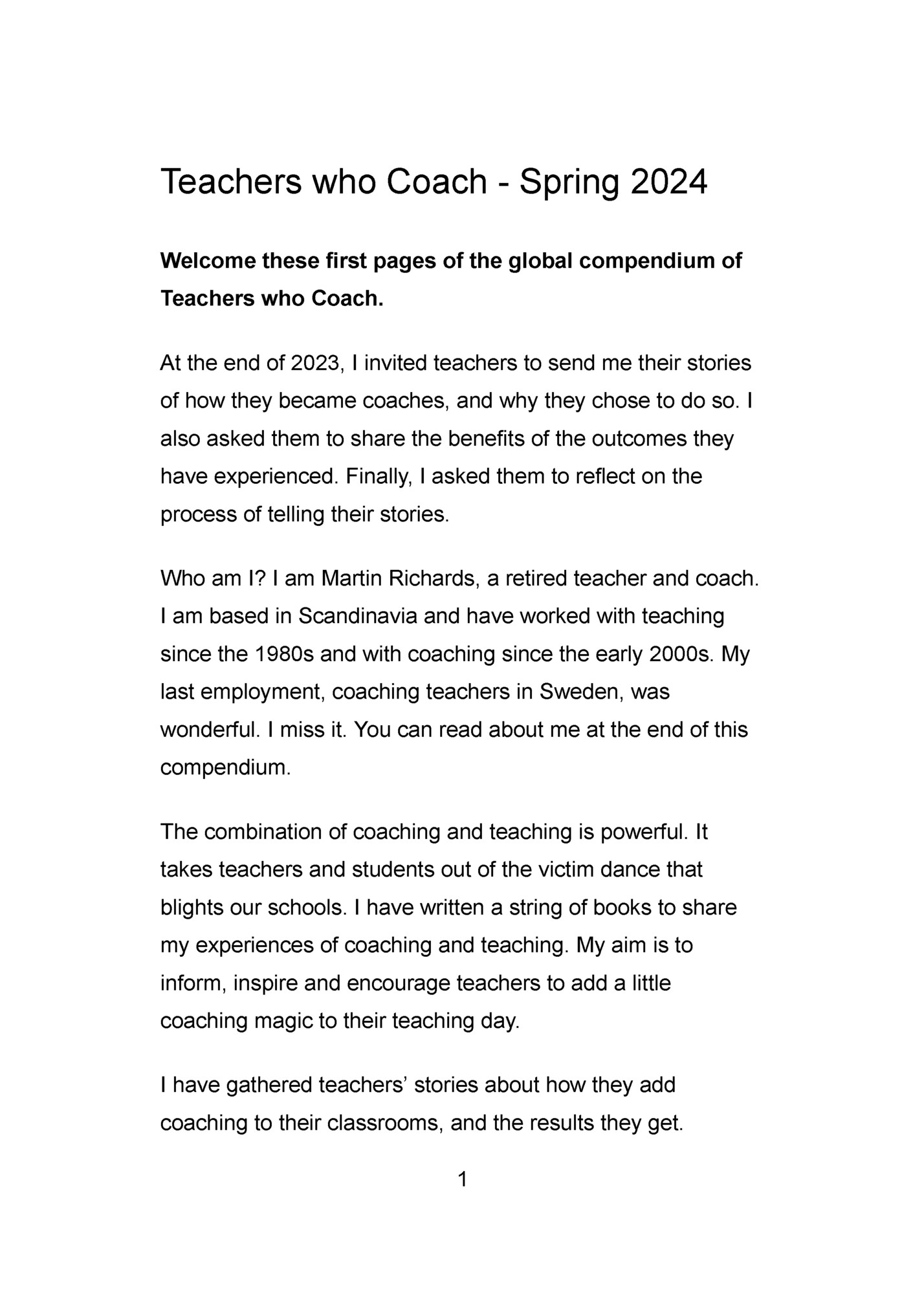
This brief compilation contains the principal change agents in the education system - teachers. The compendium also includes the general principles and leading strategies of the emerging phenomenon of coaching in an educational context. Teachers are coaching worldwide, collaboratively. This compendium aims to facilitate global connections. It will connect teachers with coaches and coaches with teachers. Reaching out for help, support, ideas, information, encouragement, training, coaching or mentoring should be as simple as clicking on a link. You are not alone. Teachers. There are many kinds of teachers. Their experience ranges from a few years to many decades. Their skills, training, qualifications and certifications are as varied as the subjects and students they teach. Teachers are always learning and growing. We need them all. Coaches. There are many kinds of coaches. Their experience ranges from a few years to many decades. Their skills, training, qualifications and certifications are as varied as the adults and youngsters they coach. We respect them all and their journeys towards being a better coach. It is the client who chooses their coach. We need them all. 2
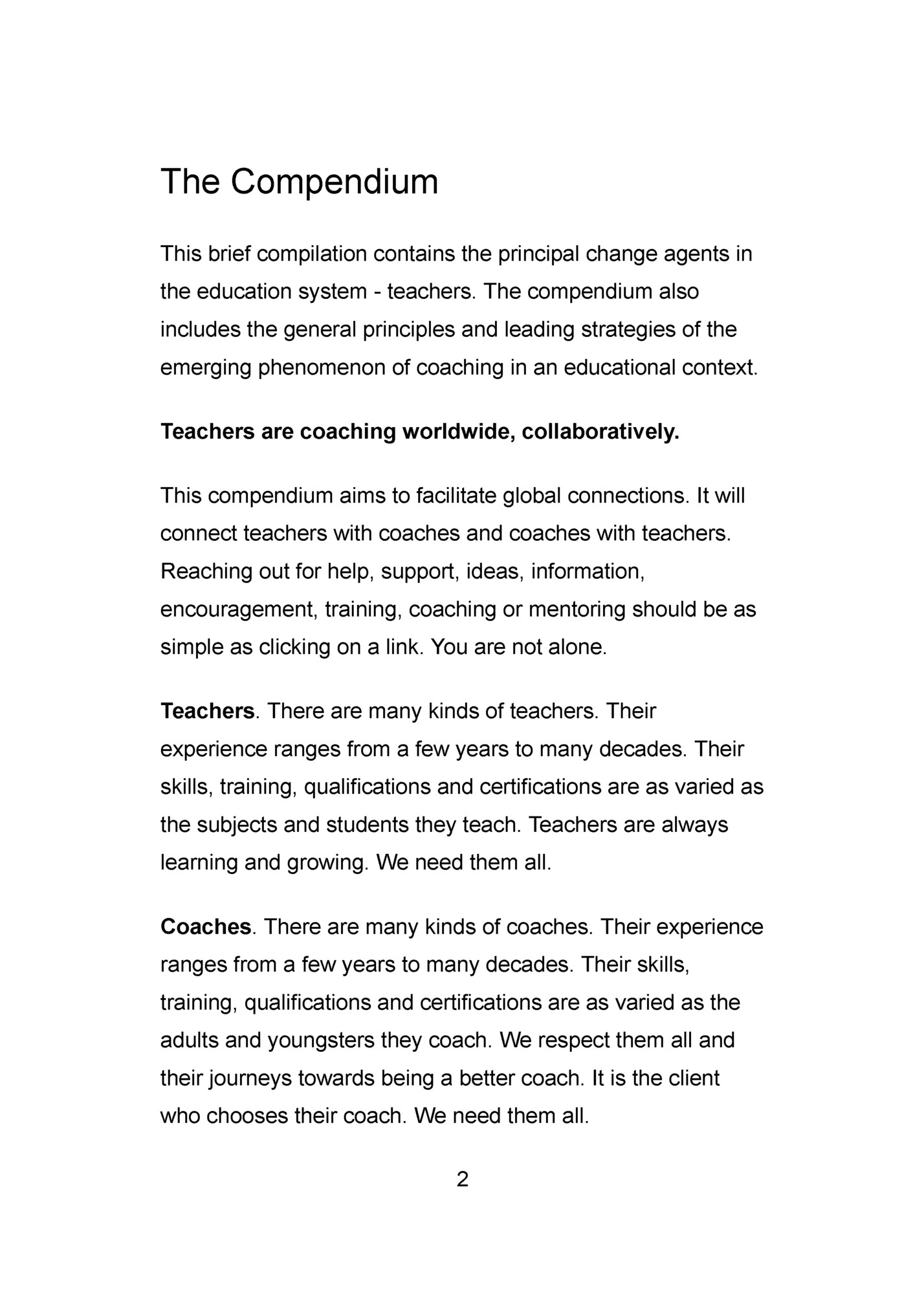
combine coaching with teaching. Some begin as teachers and later add on coaching skills. Others begin as leaders and add on teaching skills. Some dance between the skill sets like Fred Astaire and Ginger Rogers. Outcomes. There are so many beneficial outcomes from combining coaching and teaching. I will let these teachers who coach tell their own stories. Reflections. There are many tools in the teaching and coaching worlds. One of the best is to pause and reflect before taking any next steps. 3
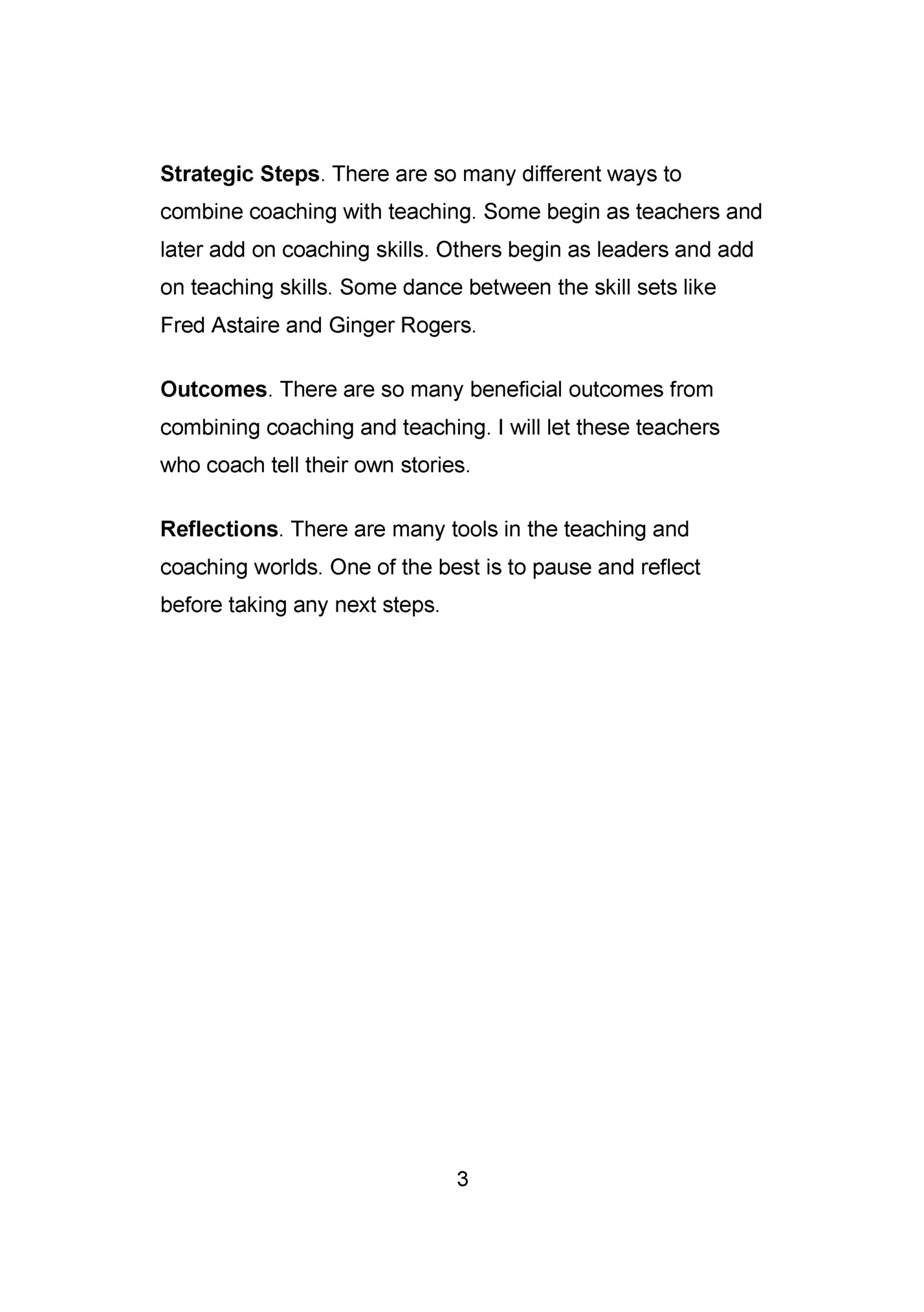
In this Spring 2024 Compendium, we will travel around the World to meet eight teachers who coach. First we meet Dan Vockins who is based in the UK. Then Alina Shmakova who is based in Russia. Next up are Jana Grežová, in Slovakia, Kaire Viil, in Estonia, and Silvia Čiháková Aguilar in Czechia. Then we meet Arantza Danes Vilallonga in Spain. Finally we meet Daniel Söderholm in Sweden and Harvey Trump in Egypt. 4
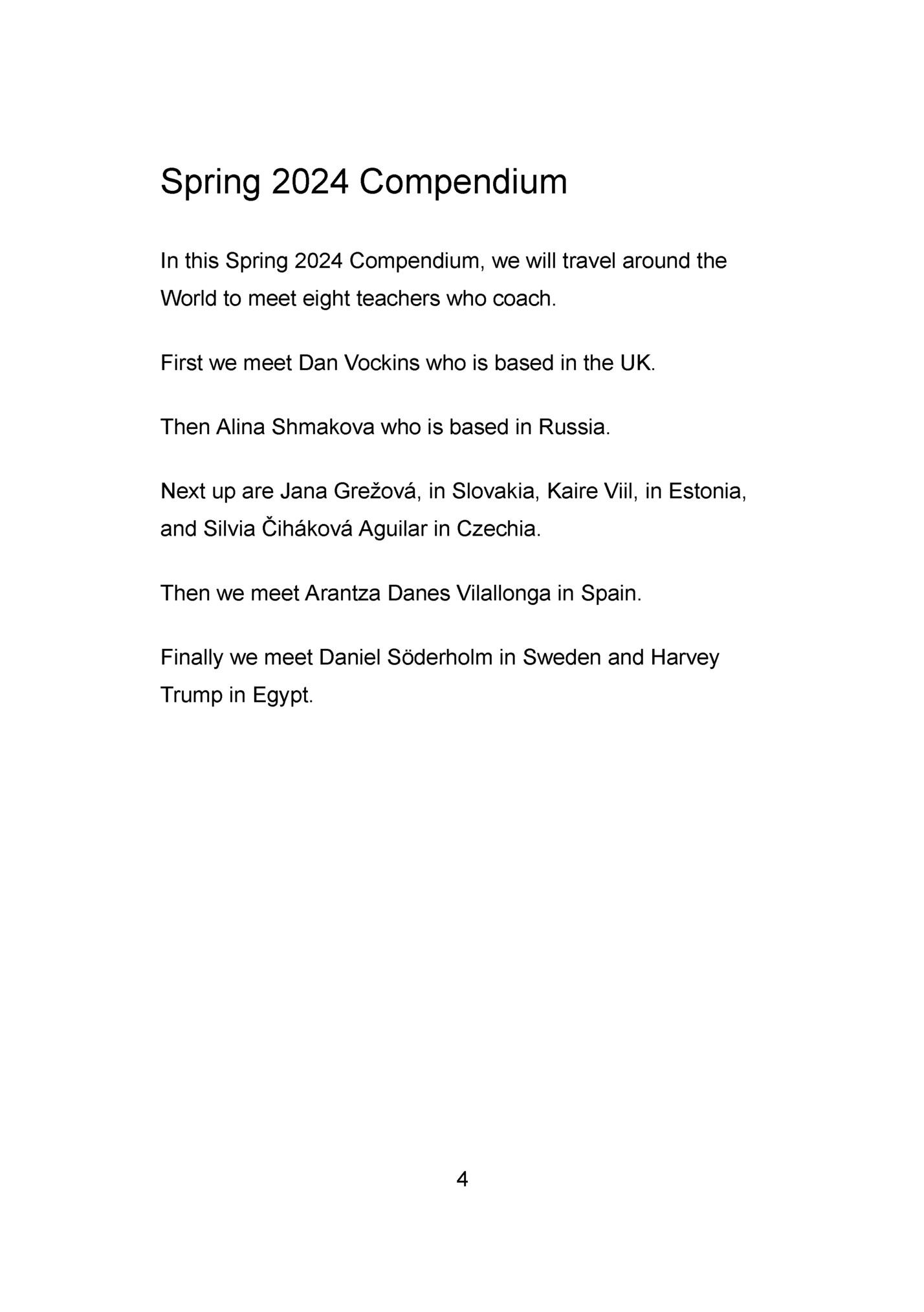
https://www.linkedin.com/in/dan-vockins-491433156/ Helping people make positive change through coaching, counselling and tutoring. Location: Doncaster, England, United Kingdom 5
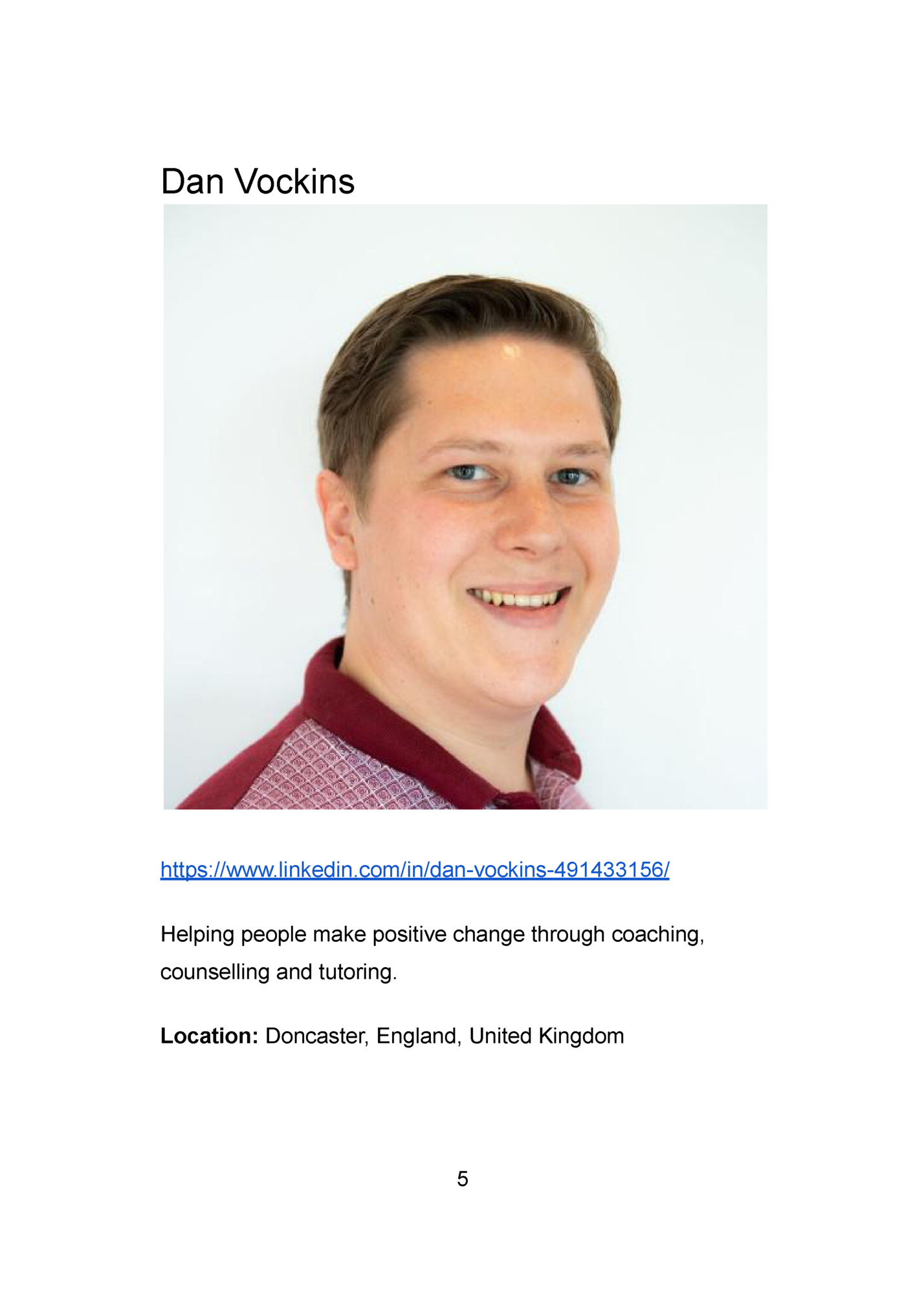
teaching, and the benefits for me and my students. Ten years ago, in 2013, I was fortunate enough to be working in a school which was managed by people who were open-minded and dedicated to staff wellbeing and development. The leadership team brought in a coach to work with the staff, and we all had monthly, 1:1 sessions. This was how I first experienced coaching and was hooked immediately. After a year of receiving coaching, I knew I wanted to learn more and gained my diploma in coaching through the company who came into our school. I could clearly see how coaching could develop every area of my life, including teaching. The way I approached teaching shifted slightly and I was far more conscious of the decisions I was making during interactions with my students. There are so many benefits to using coaching in the classroom, but I am going to explain some of the key ones for me… Unconditional Positive Regard During my coaching training, we learned about the three core conditions Carl Rogers stated were necessary for any successful interactions in person-centred therapies. These 6
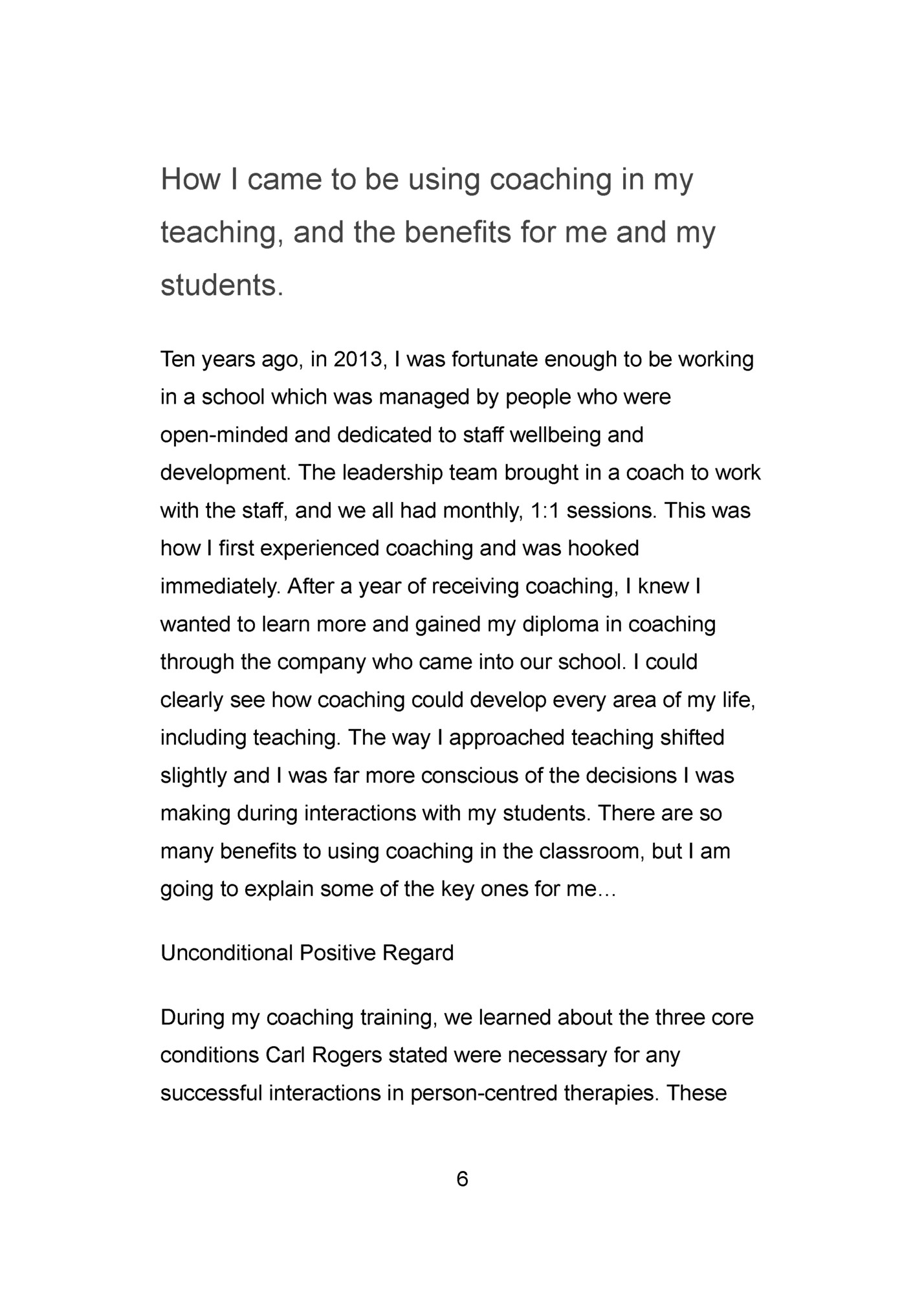
(UPR). Although coaching is different to talking therapies, such as counselling, I strongly believe the core conditions are still vital if successful coaching is to take place. One of these three conditions resonated with me slightly more than the other two. This was UPR. I felt a great need to ensure that all my students knew that I held them in high regard; that they felt wanted and respected in my classroom. This at times can be tested when I see behaviours from students that completely go against my core values, but I must separate the behaviours from the individual. If a student feels like a teacher ‘doesn’t like them’ this can often lead to difficulties so I do all I can to show them that I see them in a positive light and I value them as a human being. Listening I believe that listening is our greatest superpower. The simple act of listening shows that we value what the person has to say and therefore value them as people. This can make people feel like the most important person in the world – not listening can do the opposite. Ensuring the students I work with know that they will be listened to, often gives them more confidence to share ideas and give responses. In the past, I have taught children to listen to one another as well. Showing them that true listening is not about waiting to respond but 7
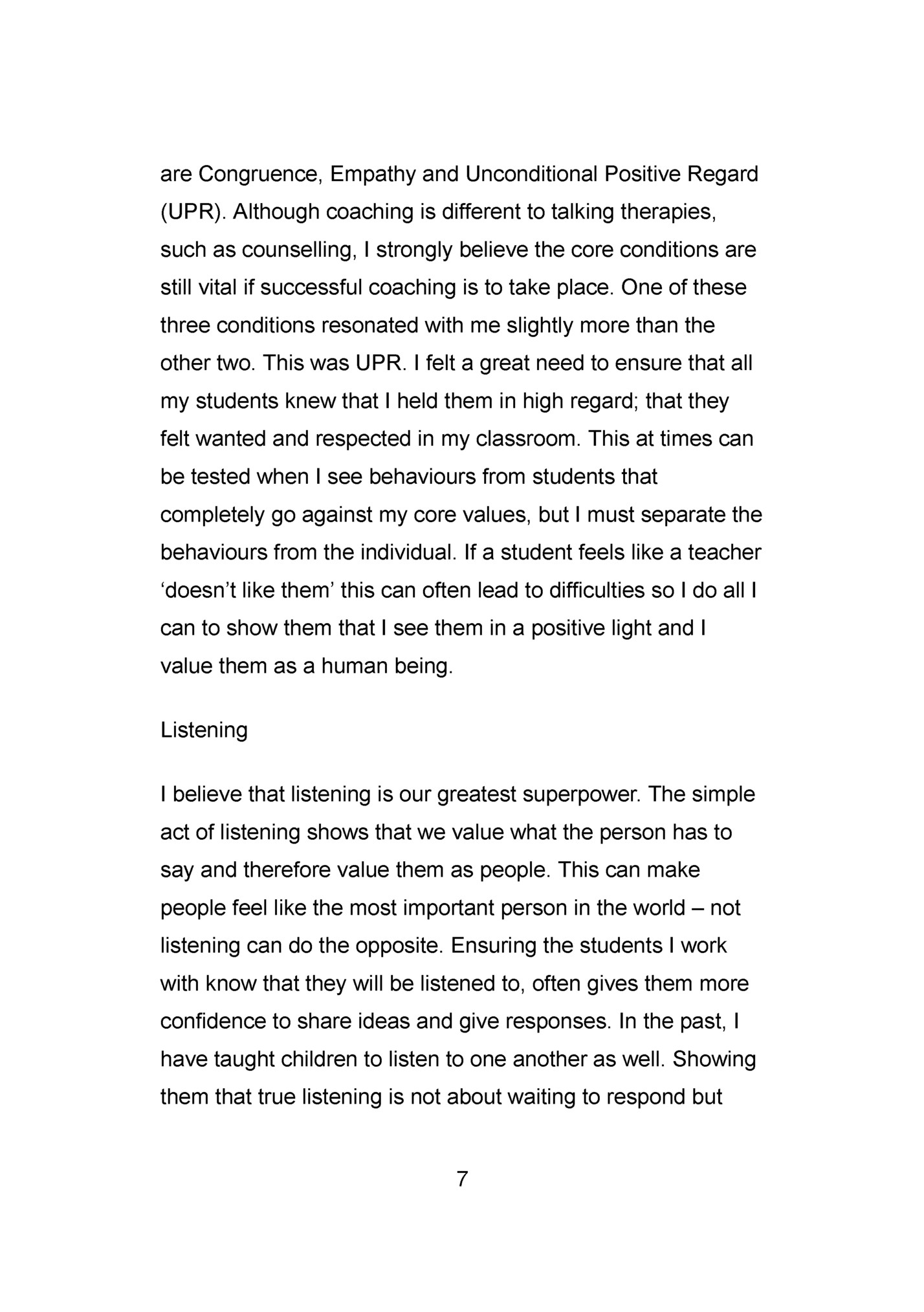
what they heard from their peers, to make sure they have understood the point, how it was intended. A consequence of consciously listening to the students I work with is an increased level of maturity and respect from most students. Fairness is high on the list of priorities when asking a student to describe a ‘good teacher’ and they often link being listened to with a teacher being fair. Questioning Coaching has developed my knowledge and understanding of questioning. Questions in a classroom often get us closer to the ‘right’ answer, therefore closing possibilities down. Although I cannot avoid these kinds of questions entirely when teaching, I do try to ask questions which open possibilities up as much as I can. I use questions to seek understanding; understanding of the ideas the children in my class are trying to communicate. I want a full understanding of where an answer has come from before I consider giving feedback, which may include letting the student know that they have a misconception. If I ensure that all questions are seen as having value, then I hope my students will always feel comfortable taking risks, being creative, answering a question (even when they are not sure of the answer) and asking their own questions. 8
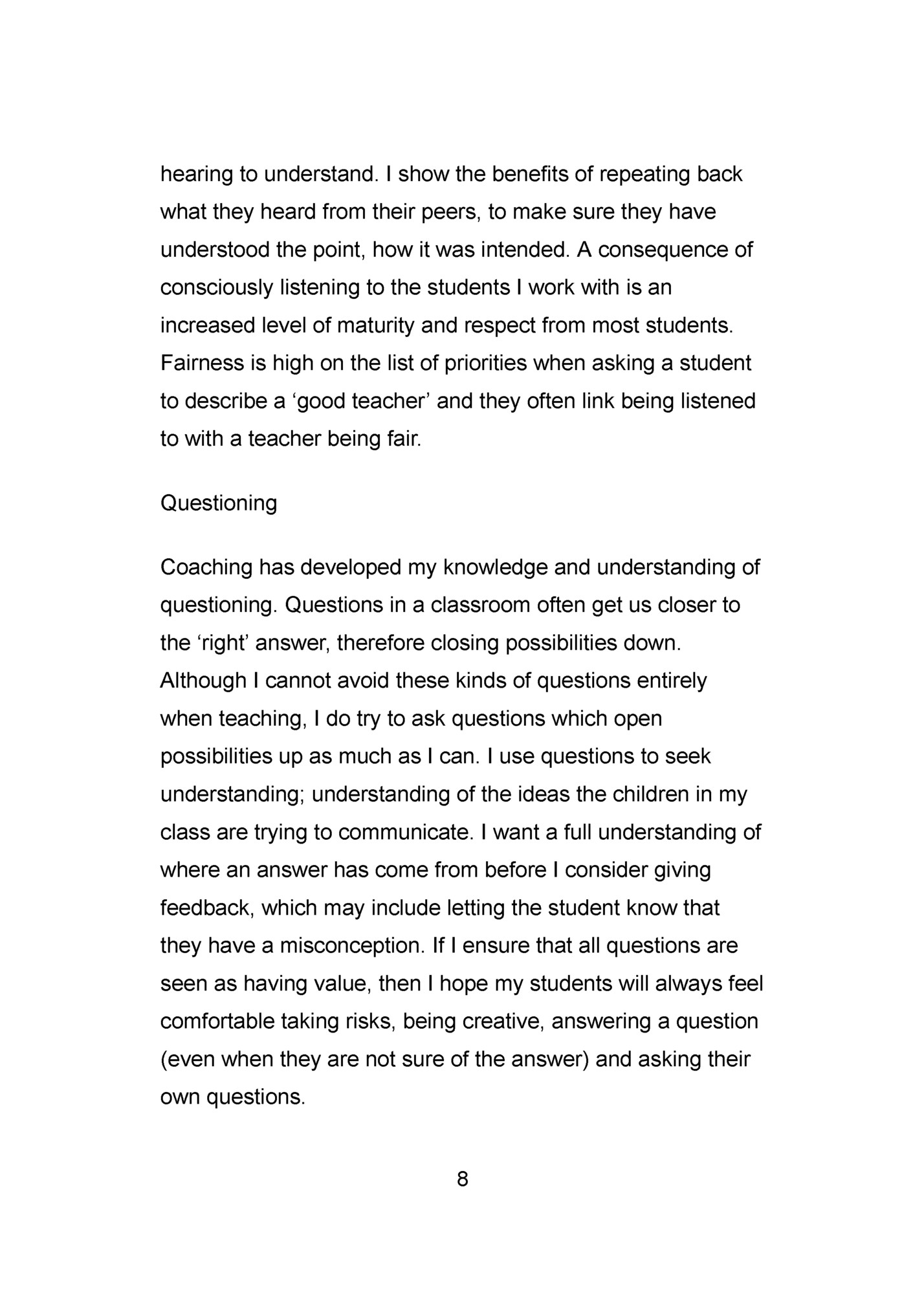
Fleepit Digital © 2021